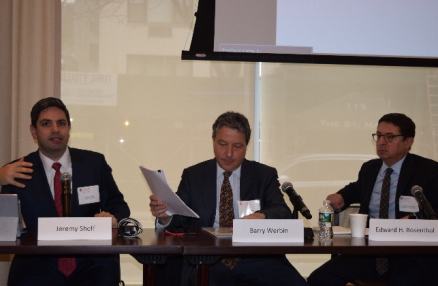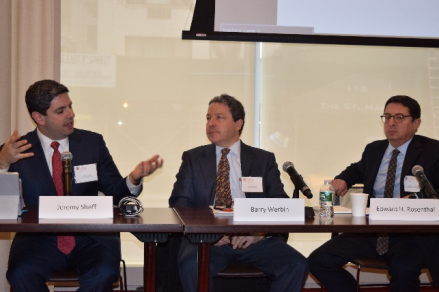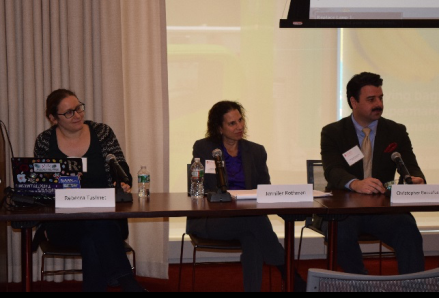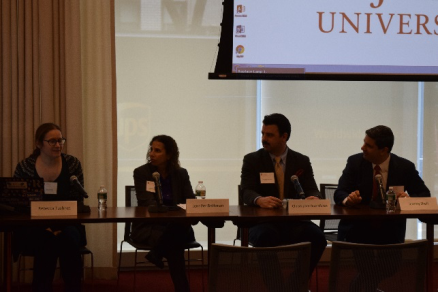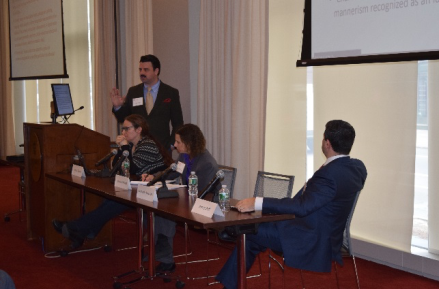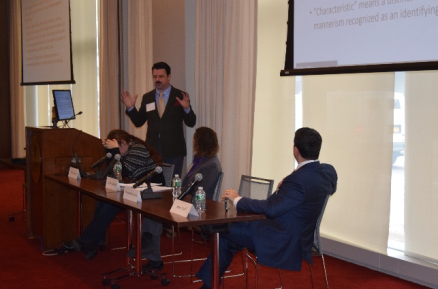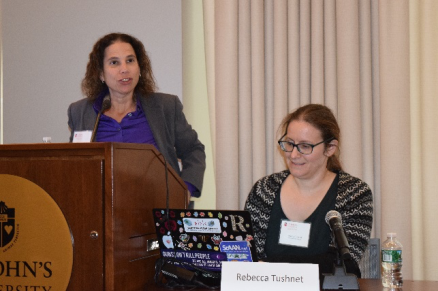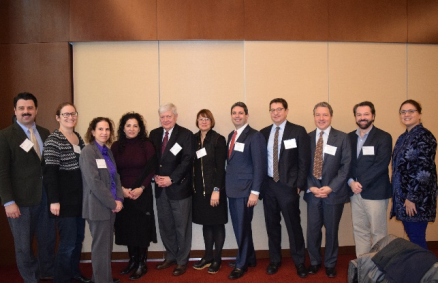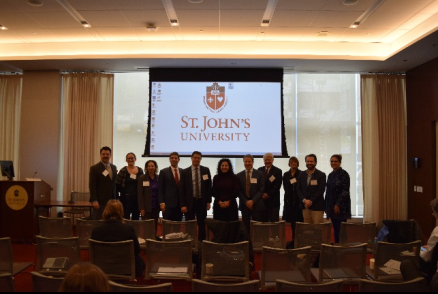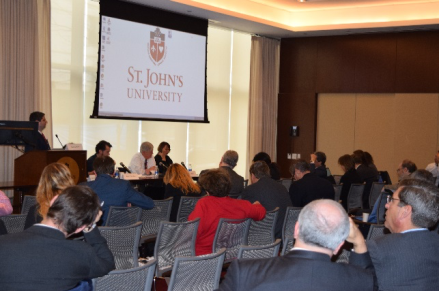On Friday, December 8, 2017, the IPLC hosted an event, Roundtable: The Right of Publicity in New York, which it co-sponsored with the Entertainment, Arts, and Sports Law Section of the New York State Bar Association (NYSBA). The Roundtable addressed the hot-button issue of possible legislation afoot in New York State that would expand the current framework in place for privacy and publicity rights. The discussion, which included experts from practice, the academy, and the legislature and which was moderated by Professor Jeremy Sheff, focused on the nature, scope, and history of these rights in New York and on the details of the proposed bill—A8155/S5857.
Kicking off the first panel, Edward H. Rosenthal Esq., of Frankfurt Kurnit Klein & Selz, PC, and Barry Werbin Esq., of Herrick, Feinstein LLP, led a discussion of the history and development of publicity rights in New York and in other jurisdictions. Beginning with the fundamental question of whether these rights are more “tort-like” or “property-like” in nature, Rosenthal and Werbin traced the contours of these rights in states like New York, California, Illinois, and Tennessee. They ended by addressing the controversial issue of post-mortem publicity rights and by providing a summary of the jurisdictions that provide for them.
Picking up from there, Professor Jennifer Rothman, of Loyola Law School of Los Angeles, a national expert on rights of publicity, voiced her support for certain protections offered by privacy and publicity rights generally and at the same time articulated concerns about the legislation as currently drafted. Specifically, she raised concerns about permitting the free transferability of one’s name, likeness, etc., which among other things could result in the holding of these “assets” by corporate entities, creditors, and parents of minors. She also pointed out the possible estate tax consequences of making these rights post-mortem. Professor Christopher Buccafusco, of Cardozo Law School, provided an in-depth exegesis of some of the most densely worded portions of the bill. Drawing on his expertise in copyright law, he worked through some possible examples, such as biopics and film restorations, to highlight questions about how they would fare under the proposed legislation. Professor Rebecca Tushnet, of Harvard Law School, concluded the panel with remarks about the First Amendment implications of the legislation. She underscored that any bill passed into law should be appropriately tailored to ensure that it actually helps its intended beneficiaries and does not merely cause endless litigation, and she offered concrete suggestions in those regards.
In the third and final panel, Senator Diane Savino, of the New York State Senate, Robert Bergin Esq., Counsel to Majority Leader Joseph Morelle, of the New York State Assembly, Bryan Clenahan Esq., Counsel, New York State Senate Labor Committee, and Amy Maggs Esq., Counsel, New York State Assembly Judiciary Committee, provided insight into the processes and goals behind the drafting of the proposed legislation, which they noted was intended to update a legal framework that is more than 100 years old. They emphasized the importance of having the proposed legislation vetted by all relevant stakeholders, and they expressed appreciation for the helpful input provided by the panelists and audience members.
